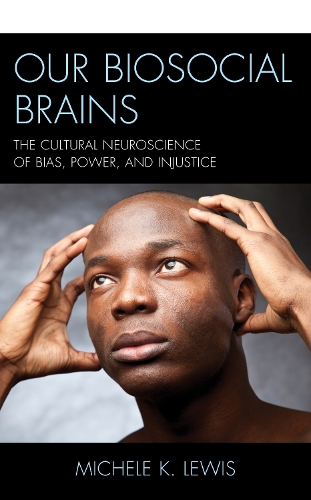
Our Biosocial Brains: The Cultural Neuroscience of Bias, Power, and Injustice
(Paperback)
Available Formats
Publishing Details
Our Biosocial Brains: The Cultural Neuroscience of Bias, Power, and Injustice
By (Author) Michele K. Lewis
By (author) Michele K. Lewis
Bloomsbury Publishing PLC
Lexington Books
21st December 2021
United States
Classifications
Professional and Scholarly
Non Fiction
Physiological psychology, neuropsychology, biopsychology
Behaviourism, Behavioural theory
155.82
Physical Properties
Paperback
230
Width 152mm, Height 229mm
Description
In Our Biosocial Brains, Michele Lewis underscores culture, brain, behavior, and social problems to advocate for a more inclusive cultural neuroscience. Traditional neuroscientists to date have not prioritized studying the impact of power, bias, and injustice on neural processing and the brains perception of marginalized humans. Lewis explains current events, historical events, and scientific studies, in Our Biosocial Brains. Readers will be drawn to the relevancy of brain science to examples of injustices and social bias. Lewis also argues that incorporating non-western African-Centered Psychology is vital to diversifying research questions and diversifying interpretations of existing brain science, because African-Centered Psychology is not rooted in racist, classist, and exclusionary hegemonic methods. Lewis argues for attention to marginalized populations, regarding the impact of violence, disrespect, othering, slurs, environmental injustice, health, and general disregard on humans brains and behavior. Using hundreds of peer-reviewed studies and original research, the author presents scientific studies that are integrated with sociocultural explanations to foster wider understanding of how our sociocultural world shapes our brains, and how our brains responses influence how humans perceive and treat one another.
Reviews
Encouraging readers to explore the brain as a biosocial organ, Lewis weaves together research in neuroscience and African-Centered/Black psychology with contemporary illustrations of oppression and their historic backdrops to make evident the need for an inclusive and deepened cultural neuroscience. Stressing the ways in which the brain is shaped by sociocultural impact, her treatment of cultural neuroscience makes clear the necessity of a shift toward the worldview of optimal psychology found capable of more effectively addressing human needs and providing solutions to global problems.
-- Linda James Myers, Ohio State University, author of Understanding an Afrocentric World View: Introduction to an Optimal PsychologyAuthor Bio
Michele K. Lewis is research fellow and associate professor of psychological sciences at Winston-Salem State University.
